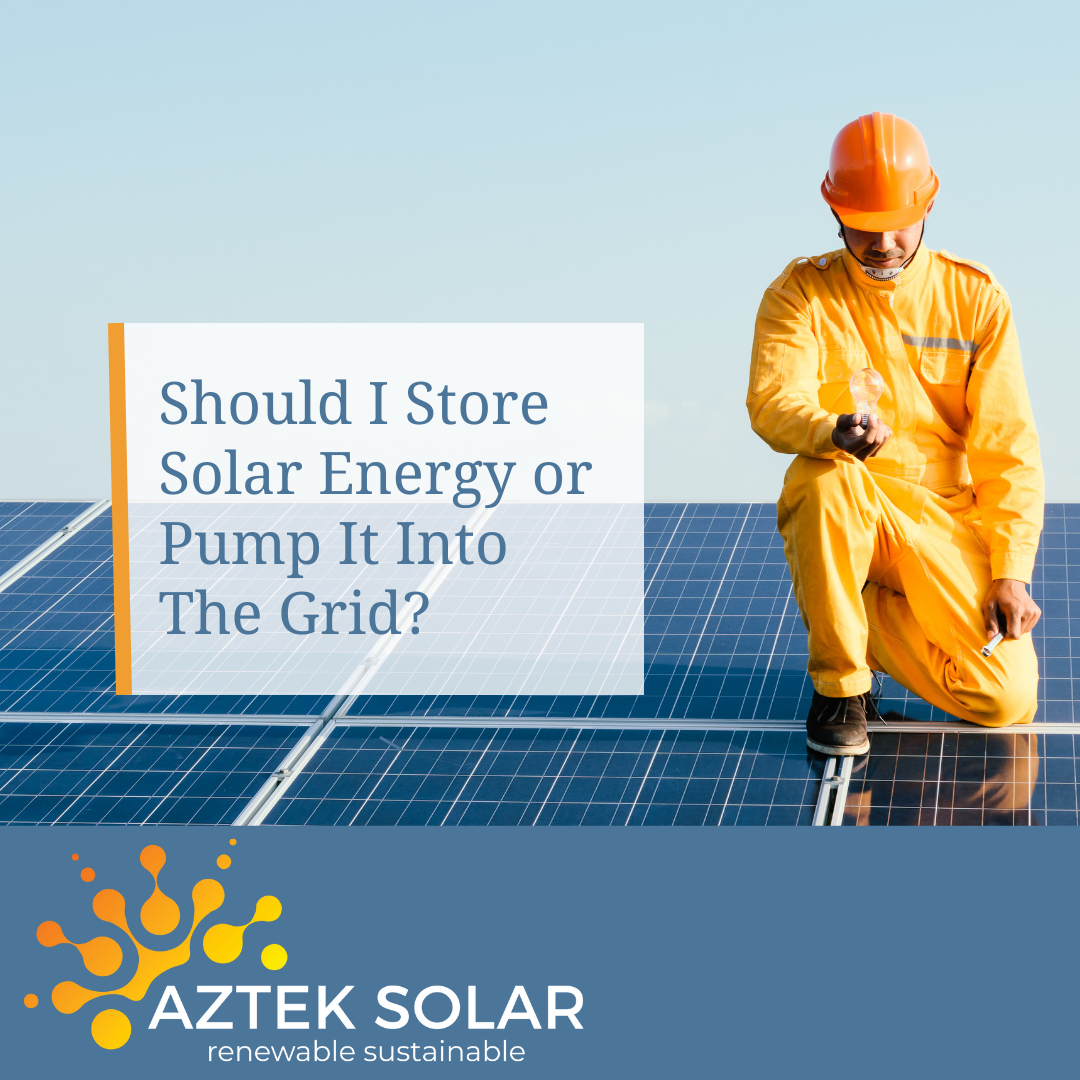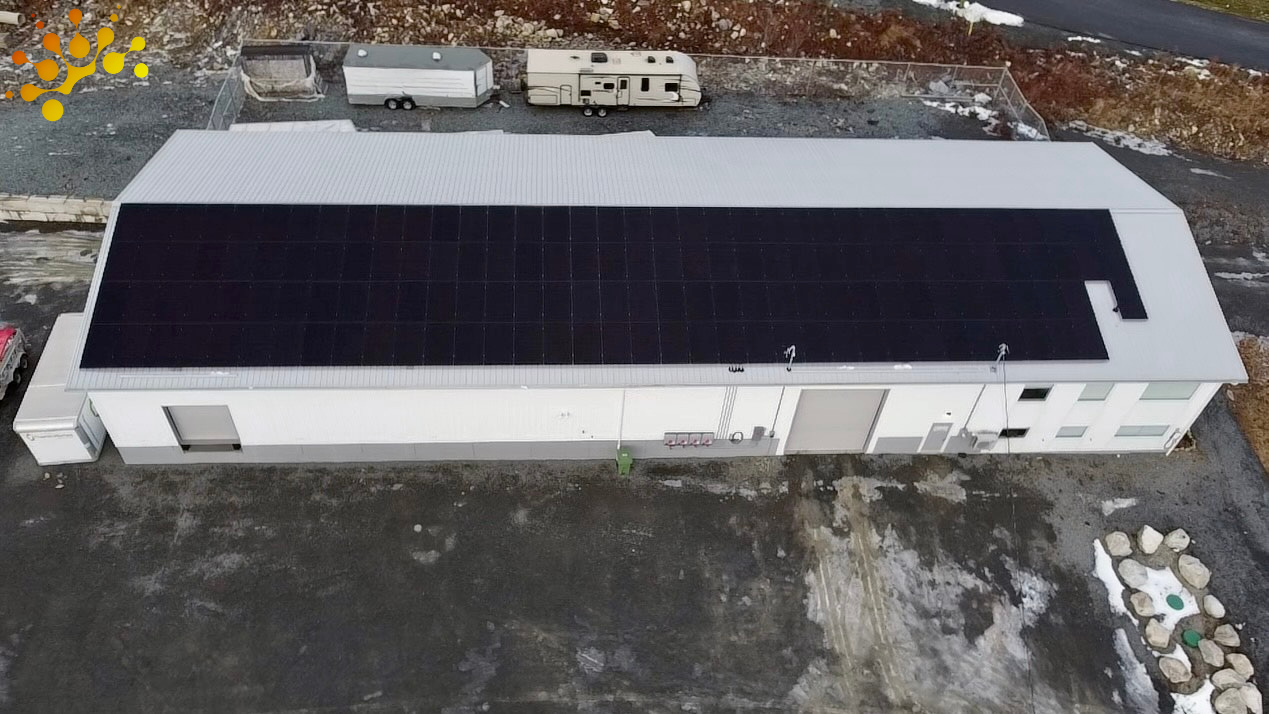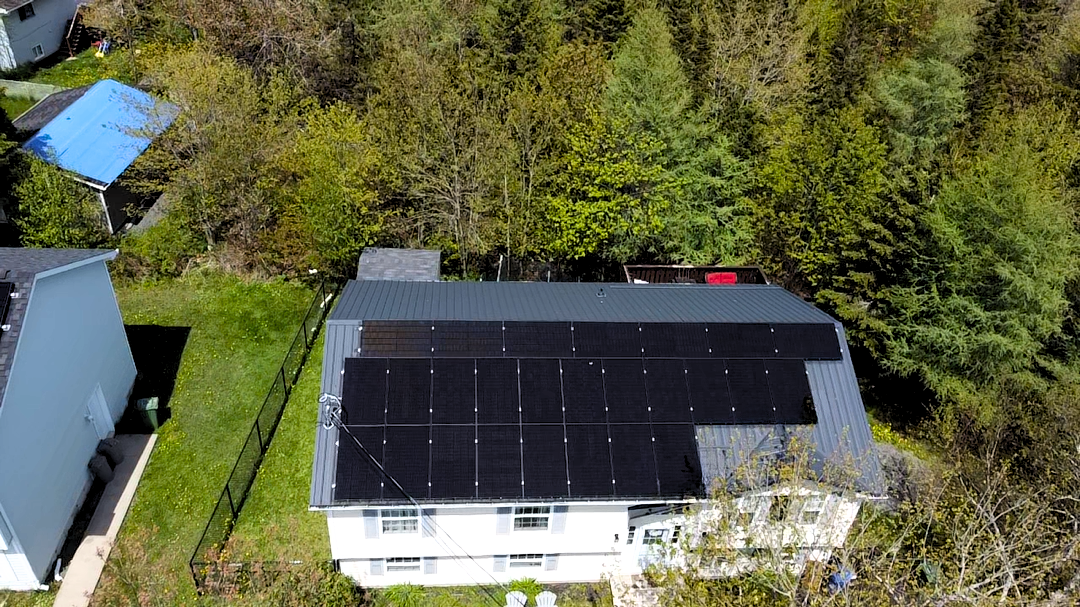Should I Store Solar Energy or Pump It Into The Grid?
As the world strives to transition to cleaner and more sustainable energy sources, solar power has emerged as a promising solution. The region of Atlantic Canada, blessed with ample sunlight and a growing interest in renewable energy, is witnessing a surge in solar installations. However, solar energy storage has become a crucial question for homeowners and businesses alike. Should one store solar energy for personal use or opt to pump it into the grid? In this article, we'll explore the advantages and disadvantages of both options to help you make an informed decision.

Storing Solar Energy:
a) Energy Independence:
One of the significant advantages of storing solar energy is achieving greater energy independence. By using batteries to store excess solar power, you can rely on your own energy reserves during peak demand or when the grid faces disruptions. This means you can power your home or business even during power outages, providing peace of mind and protection against unforeseen circumstances.
b) Maximizing Self-Consumption:
Storing solar energy allows you to optimize self-consumption. When your solar panels produce more electricity than you currently need, the excess energy can be stored in batteries for later use. By maximizing self-consumption, you reduce reliance on the grid and lower your energy bills, contributing to long-term cost savings.
c) Time-of-Use Electricity Pricing:
In regions with time-of-use (TOU) electricity pricing, storing solar energy can be particularly advantageous. You can charge your batteries during off-peak hours when electricity rates are lower and discharge them during peak hours when rates are higher. This strategy can significantly reduce your energy costs, as you avoid purchasing electricity from the grid during expensive periods.
Pumping Solar Energy into the Grid:
a) Financial Incentives:
By connecting your solar panels to the grid and pumping excess energy into it, you become eligible for various financial incentives. Net metering programs, for instance, allow you to earn credits for the excess electricity you produce, which can offset your future energy bills. Some jurisdictions also offer feed-in tariffs, where you receive a fixed payment for every unit of electricity you generate.
b) Supporting the Grid:
Pumping solar energy into the grid can help alleviate the strain on the existing electrical infrastructure. During times of high demand, your excess energy can be utilized by neighboring homes or businesses, reducing the need for additional power generation. This contributes to a more stable and reliable grid system, benefiting the entire community.
c) Simplified System Design:
Opting for grid-tied solar installations without batteries simplifies the system design and reduces upfront costs. Without the need to invest in expensive battery storage, you can allocate more resources towards high-quality solar panels, ensuring maximum energy generation. This option is especially attractive for those who prioritize an economical initial investment.
When deciding whether to store solar energy or pump it into the grid, there are several factors to consider. Storing solar energy provides greater energy independence, maximizes self-consumption, and allows you to take advantage of time-of-use pricing. On the other hand, pumping excess solar energy into the grid brings financial incentives, supports the grid infrastructure, and simplifies system design.
Ultimately, the choice between the two options depends on your priorities, budget, and specific circumstances. Some homeowners and businesses may find value in the added security and self-sufficiency that comes with energy storage, while others may prefer the financial benefits and simplicity of grid-tied systems. It's essential to evaluate your energy needs, consult with solar energy professionals, and consider long-term goals before making a decision.

For more information about a Solar Energy Solution, including Whole Home Solar PV and Solar Pool Heating solutions for your home or business, please contact AZTEK SOLAR for your free on-site evaluation.
AZTEK SOLAR is a leading Nova Scotia residential and commercial solar installer, serving Halifax, Dartmouth and the surrounding areas throughout rural Nova Scotia.
With expertise in a wide variety of systems, including Solar PV (grid-tied) systems, solar hot water and solar pool heating systems, AZTEK SOLAR has helped hundreds of Atlantic Canadian homeowners, farm operations, business owners and municipalities lower their energy bills while reducing their carbon footprint.
#SolarIsNow #RenewableEnergy #AztekSolar


